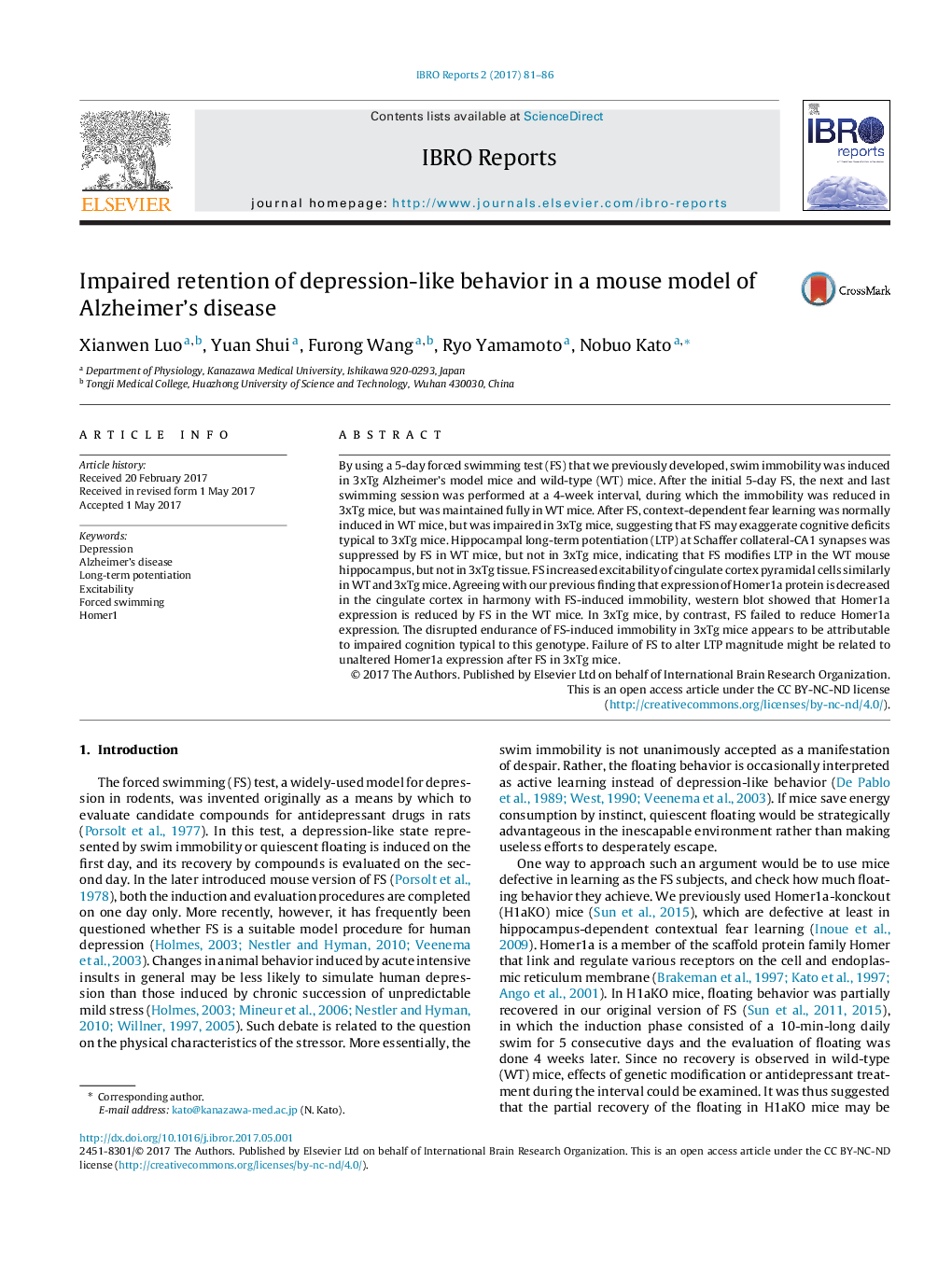| Article ID | Journal | Published Year | Pages | File Type |
|---|---|---|---|---|
| 5736440 | IBRO Reports | 2017 | 6 Pages |
â¢Four-week-long immobility was induced by forced swimming (FS) in wild-type (WT) mice.â¢The immobility was recovered within 4 weeks in Alzheimer's model (AD) mice.â¢FS reduced magnitude of long-term potentiation in WT but not AD mouse hippocampus.â¢FS reduced Homer1a expression in WT but not AD mouse cingulate cortex.
By using a 5-day forced swimming test (FS) that we previously developed, swim immobility was induced in 3xTg Alzheimer's model mice and wild-type (WT) mice. After the initial 5-day FS, the next and last swimming session was performed at a 4-week interval, during which the immobility was reduced in 3xTg mice, but was maintained fully in WT mice. After FS, context-dependent fear learning was normally induced in WT mice, but was impaired in 3xTg mice, suggesting that FS may exaggerate cognitive deficits typical to 3xTg mice. Hippocampal long-term potentiation (LTP) at Schaffer collateral-CA1 synapses was suppressed by FS in WT mice, but not in 3xTg mice, indicating that FS modifies LTP in the WT mouse hippocampus, but not in 3xTg tissue. FS increased excitability of cingulate cortex pyramidal cells similarly in WT and 3xTg mice. Agreeing with our previous finding that expression of Homer1a protein is decreased in the cingulate cortex in harmony with FS-induced immobility, western blot showed that Homer1a expression is reduced by FS in the WT mice. In 3xTg mice, by contrast, FS failed to reduce Homer1a expression. The disrupted endurance of FS-induced immobility in 3xTg mice appears to be attributable to impaired cognition typical to this genotype. Failure of FS to alter LTP magnitude might be related to unaltered Homer1a expression after FS in 3xTg mice.
